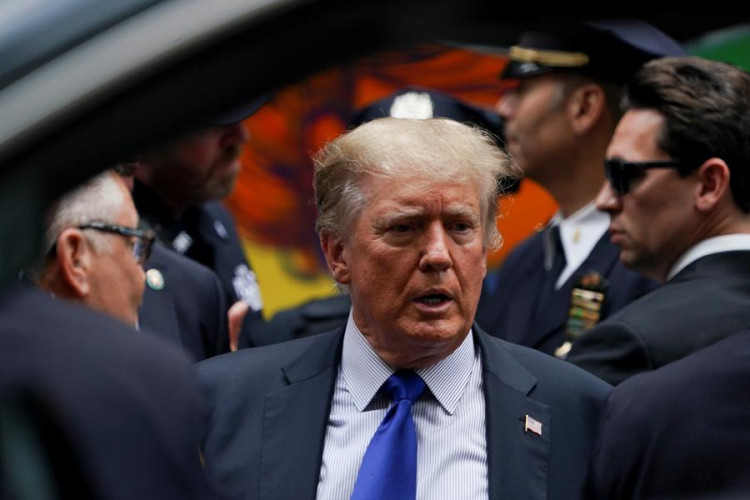New York Attorney General Letitia James has resolutely refused to dismiss the $486 million civil fraud judgment against President-elect Donald Trump, despite his legal team's appeals to prioritize "national unity." The protracted legal battle centers on allegations that Trump and his company engaged in fraudulent asset inflation to secure favorable loan terms, a charge he has consistently denied.
In a letter made public Tuesday, Judith Vale, New York's deputy solicitor general, rejected Trump attorney John Sauer's November request to vacate the judgment. Sauer argued that the civil case would interfere with Trump's presidential duties and urged James to drop the charges to reduce partisan tensions. Vale countered there is "no merit to your claim that the pendency of defendants' own appeal will impede Mr. Trump's official duties as President."
This ongoing legal dispute stems from a February ruling by Judge Arthur Engoron, who found Trump liable for inflating his real estate assets and manipulating financial records to gain unfair market advantages. The original judgment of $350 million has grown to over $486 million with pre-judgment interest, with Trump personally responsible for the majority of the penalty.
Trump's legal team contends that the allegations lack merit, accusing James of overstepping her authority and framing the lawsuit as politically motivated. Trump spokesman Steven Cheung labeled James' refusal to drop the case as "sad and weak," reiterating claims that the investigation constitutes a partisan "witch hunt."
Sauer, who Trump has nominated as solicitor general in his incoming administration, had previously argued that the judgment contradicts constitutional provisions protecting the president's ability to govern unimpeded by state actions. Vale dismissed this notion, stating, "The ordinary burdens of civil litigation do not impede the President's official duties in a way that violates the U.S. Constitution."
Citing precedent, Vale referred to the 1997 Supreme Court decision in Clinton v. Jones, which allowed a civil sexual harassment lawsuit against then-President Bill Clinton to proceed during his presidency. Mr. Trump's "appeals will be handled primarily by his appellate lawyers," Vale wrote, adding that any necessary consultations would not pose an unconstitutional burden.
The fraud case has its origins in a years-long investigation by James' office into Trump's financial practices. The trial included testimony from Trump and his children, painting a picture of alleged systematic fraud to bolster his company's financial standing. Vale emphasized, The "overwhelming evidence supports the Supreme Court's conclusion that Mr. Trump and the other defendants engaged in repeated and persistent fraud and illegality."
Trump's legal troubles extend beyond the civil fraud judgment. He is appealing separate rulings requiring him to pay $88.3 million to advice columnist E. Jean Carroll in a defamation and sexual abuse case. Despite these challenges, Trump's legal team remains steadfast in their efforts to overturn the judgments.
James has drawn a clear line between Trump's civil and criminal cases, noting that the dismissal of criminal charges by federal prosecutors, including Special Counsel Jack Smith, bears no relevance to this civil enforcement action. This is "not a criminal action," Vale asserted.
While the New York appeals court has yet to rule on Trump's challenge to the fraud judgment, legal experts suggest the case could have broader implications for how civil litigation intersects with the responsibilities of a sitting president. Trump, however, has shown no indication of dropping his appeals or paying the fine.






